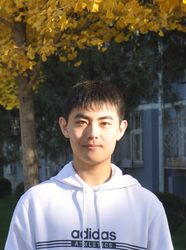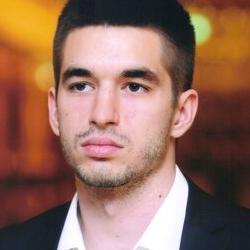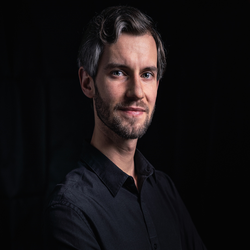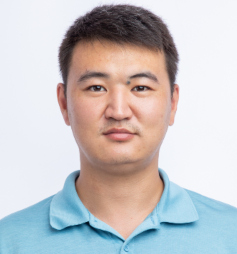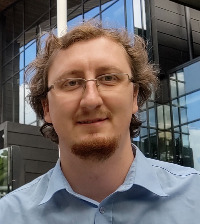Postdoctoral Researchers and Research Fellows
Terry Chien-Jen Yang |
Linjie Dai |
|
|
|
||
| Terry received his PhD in Photovoltaic Engineering (2016) from UNSW in Sydney, Australia. He recently joined StranksLab as a Marie Skłodowska-Curie postdoctoral fellow working on lightweight and flexible all-perovskite multijunction solar cells. Previously, he worked on perovskite-silicon tandem solar cells at CSIRO Energy in Australia (2019-2021) and PV-Lab, EPFL in Switzerland (2017-2019). His research interests include: perovskites, crystalline silicon, tandem/multijunction solar cells, and the materials science of other photovoltaic technologies. Started June 2021. | Linjie received his PhD in Physics from Cambridge in 2021 for his work on ultrafast carrier dynamics in perovskites under the supervision of Prof. Neil C. Greenham. He joined StranksLab as a postdoc working on perovskite scintillators for medical imaging. By following ultrafast electronic and structural dynamics using transient absorption/photoluminescence/radioluminescence spectroscopy, he investigates fundamental loss mechanisms in semiconductors and discovers materials with desirable optoelectronic properties for high-efficiency solar cells, light-emitting diodes and X-ray detectors. Started June 2021. | |
|
|
||
Milos Dubajic |
Dengyang Guo |
|
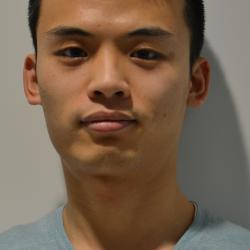 |
||
| Milos obtained his BSc and MSc in Electrical Engineering from the University of Belgrade, Serbia. His master’s studies focused on designing novel, lossless metamaterial structures. During his PhD at UNSW, Australia, he focused on applying light, X-ray and neutron spectroscopic techniques for the characterization of electron and phonon dynamics of novel photovoltaic materials. He joined StranksLab as a postdoc to explore how strain manipulation in metal halide perovskites could lead to improvements in their optoelectronic performance. | Dengyang received his PhD under supervision of Dr. Tom J. Savenije from TUDelft, where he studied charge carrier dynamics in metal halide perovskites. His interest is on analyzing fundamental properties of optoelectronic materials and quantifying the connection between the material property and device performance. Started January 2021. | |
Youngkwang Jung |
Simon Kahmann |
|
| Youngkwang obtained his PhD in Materials Science & Engineering under supervision of Prof. Aron Walsh at Yonsei University, Korea. In September 2022, he joined the group as a Marie Curie Postdoctoral Fellow working on defect-strain relationships in halide perovskites. His research involves materials simulations on the basis of first-principles density functional theory (DFT) using high-performance computing. Beyond bulk properties – electronic, vibrational, optical, and transport – his interests include point and extended defects including surfaces and interfaces. | Simon joined the StranksLab in January 2021 with as a fellow through the German Academic Exchange Service and has since secured a Leverhulme Early Career Fellowship. He received a double-doctorate from the University of Groningen and the Friedrich-Alexander University Erlangen-Nuremberg under the supervision of Maria A. Loi and Christoph J. Brabec for his studies on nanomaterials for optoelectronic applications. Simon coordinates the spectroscopy sub-group of the StranksLab and focuses his work on PL spectro-microsocpy of nanomaterials and chiral compounds. | |
Satyawan Nagane |
Linfeng Pan |
|
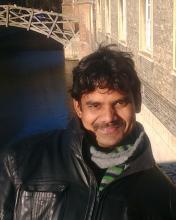 |
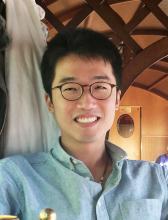 |
|
|
Satya is a Newton International Fellow (The Royal Society). He obtained his PhD from National Chemical Laboratory (NCL), Pune, India in March 2017. His area of research is focused on design and synthesis of new hybrid perovskites for solar cells and LEDs. He is also working on development of different passivative layers to improve the performance of hybrid perovskite-based devices. Started August 2018. |
Linfeng is a Early Postdoc. Mobility Fellow at StranksLab in the University of Cambridge. He obtained PhD degree from École Polytechnique Fédérale de Lausanne (EPFL, Switzerland) for his research on solar fuels with oxides under supervision of Prof. Anders Hagfeldt and Prof. Michael Grätzel. His research is focused on the anisotropic electronic and photophysics of semiconductors with an emphasis on oxides materials. Started November 2020. |
|
|
|
||
|
|
|
|
|
Bart Roose |
Ganbaatar Tumen-Ulzii | |
|
|
||
|
Bart obtained a PhD (AMI, Switzerland) for his work on degradation and |
Ganbaa’s research has focused on the development of a novel X-ray detector for early-stage cancer detection. He also works on optoelectronic device fabrication including perovskite solar cells, photodetectors, light-emitting diodes and lasers. He received his BSc in Chemical Engineering from National University of Mongolia and MEng in Nanoscience and Nanoengineering from New Mongol Institute of Technology. He received his PhD in chemical engineering from Kyushu University in Japan. |
|
| Javad Shamsi | Szymon Zelewski | |
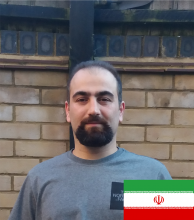 |
||
|
Javad received his Ph.D. in NanoChemistry from Italian Institute of Technology in 2018, where he worked on colloidal synthesis of lead halide perovskite nanocrystals for optoelectronic applications under the advisement of Prof. Liberato Manna. He is now continuing as a postdoc to pursue his passion for the fundamental research in quantum confined perovskite nanocrystals at the University of Cambridge. Started June 2018. |
Szymon obtained his MSc and PhD in physics from Wroclaw University of Science and Technology, Poland, where he studied fundamental electronic and optical properties of 2D materials and other low-dimensional semiconductor structures. As a postdoctoral fellow he expands his research interests to investigate electronic disorder and nonradiative recombination effects in perovskite materials using photothermal experiments. Started September 2021. |
|
|
|
||
|
|
||
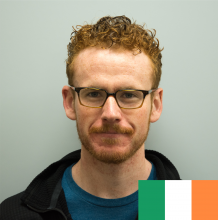 |
||


